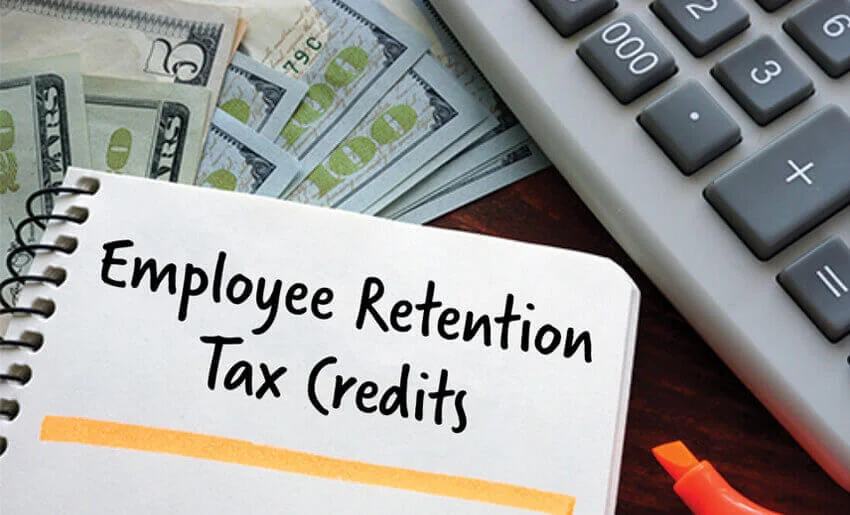ERTC Tax Credit Qualifications: Who is not eligible for this tax credit?
The Employee Retention Tax Credit (ERTC) has been a lifeline for many businesses during the challenging times brought about by the COVID-19 pandemic. This tax credit was designed to help businesses retain their employees and stay afloat when faced with economic hardships. While the ERTC has provided crucial financial relief to numerous businesses, it’s important to understand that not everyone qualifies for this tax credit. In this article, we will delve into the ERTC tax credit qualifications and specifically focus on who is not eligible for this valuable tax benefit.
Understanding the Employee Retention Tax Credit (ERTC)
Before we dive into the eligibility criteria, let’s briefly recap what the Employee Retention Tax Credit is all about. The ERTC is a refundable tax credit introduced as part of the CARES Act in 2020. It was later expanded and extended through subsequent legislation, including the Consolidated Appropriations Act, 2021, and the American Rescue Plan Act, 2021.
The primary purpose of the ERTC is to encourage businesses to retain and continue paying their employees, even during periods of economic uncertainty and reduced revenue. It offers a significant financial incentive in the form of a tax credit, which can be used to offset the employer’s portion of payroll taxes or claimed as a refund.
ERTC Eligibility Overview
To qualify for the ERTC, businesses must meet specific eligibility criteria, which include:
- Business Operations Affected by COVID-19: To be eligible for the ERTC, a business must have experienced a significant decline in gross receipts due to the COVID-19 pandemic. This can be in the form of a reduction in revenue compared to a prior period or meeting certain other criteria outlined by the IRS.
- Full or Partial Suspension of Operations: Businesses that had to fully or partially suspend their operations due to government orders related to COVID-19 are also eligible for the ERTC. This includes restrictions on business operations such as lockdowns or capacity limits.
- Size of the Business: The size of the business plays a role in determining eligibility. Generally, eligible employers are those with 500 or fewer full-time employees. Larger employers may also qualify under certain conditions.
- Governmental Entity Restrictions: Governmental entities and their instrumentalities are generally not eligible for the ERTC. However, this exclusion does not apply to tax-exempt organizations.
Now that we have a basic understanding of the ERTC and its eligibility criteria, let’s explore who is not eligible for this tax credit.
Who is Not Eligible for the ERTC?
While the ERTC has been instrumental in providing financial relief to many businesses, there are certain situations and entities that are not eligible for this tax credit. It’s crucial to be aware of these exclusions to avoid any misunderstandings or misapplications. Here are some scenarios in which businesses or entities are not eligible for the ERTC:
1. Governmental Entities and Their Instrumentalities:
As mentioned earlier, governmental entities and their instrumentalities are generally not eligible for the ERTC. This exclusion primarily applies to federal, state, and local government agencies, as well as any organizations closely associated with them. The rationale behind this exclusion is that these entities have access to other forms of government assistance and relief programs.
2. Self-Employed Individuals:
The ERTC is designed to benefit employers who maintain a workforce and pay wages to employees. Self-employed individuals, including sole proprietors, partners in a partnership, and more, are not eligible for the ERTC on their own earnings. However, they may be eligible for other forms of pandemic relief, such as the Paycheck Protection Program (PPP) or Economic Impact Payments (stimulus checks).
3. Entities That Received PPP Loans:
Businesses that have already received a Paycheck Protection Program (PPP) loan and have had that loan forgiven are not eligible for the ERTC on wages paid with the proceeds of the forgiven PPP loan. This restriction is in place to prevent “double-dipping” or receiving multiple forms of financial relief for the same expenses.
4. Severance Pay Exclusion:
While the ERTC generally covers wages paid to employees, it does not apply to severance pay or similar termination payments. If a business pays severance to employees, those payments are not eligible for the ERTC tax credit.
5. Ownership Restrictions:
Certain ownership structures can impact eligibility. For example, if a business is owned by the spouse, child, or parent of another business owner, it may not qualify for the ERTC if the other business owner received a PPP loan.
6. Tax-Exempt Organizations Not Operating a Trade or Business:
While tax-exempt organizations can be eligible for the ERTC, they must be operating a trade or business to qualify. Organizations that are purely charitable or religious, with no business operations, are not eligible for the tax credit.
Conclusion
The Employee Retention Tax Credit (ERTC) has provided vital financial relief to countless businesses navigating the challenges of the COVID-19 pandemic. However, it’s crucial to be aware of the eligibility criteria and the situations in which the ERTC does not apply.
Governmental entities, self-employed individuals, businesses that received forgiven PPP loans, and those paying severance are among the groups not eligible for this tax credit. Additionally, certain ownership structures and tax-exempt organizations that do not operate a trade or business may also be excluded.
Understanding these exclusions is essential for businesses seeking to maximize their available financial relief options during these uncertain times. It’s advisable to consult with a tax professional or legal expert to ensure compliance with all tax regulations and make informed decisions regarding the ERTC and other relief programs. While the ERTC can be a valuable lifeline, knowing who is not eligible is just as crucial as understanding who qualifies for this tax credit. Click here to read more amazing article

